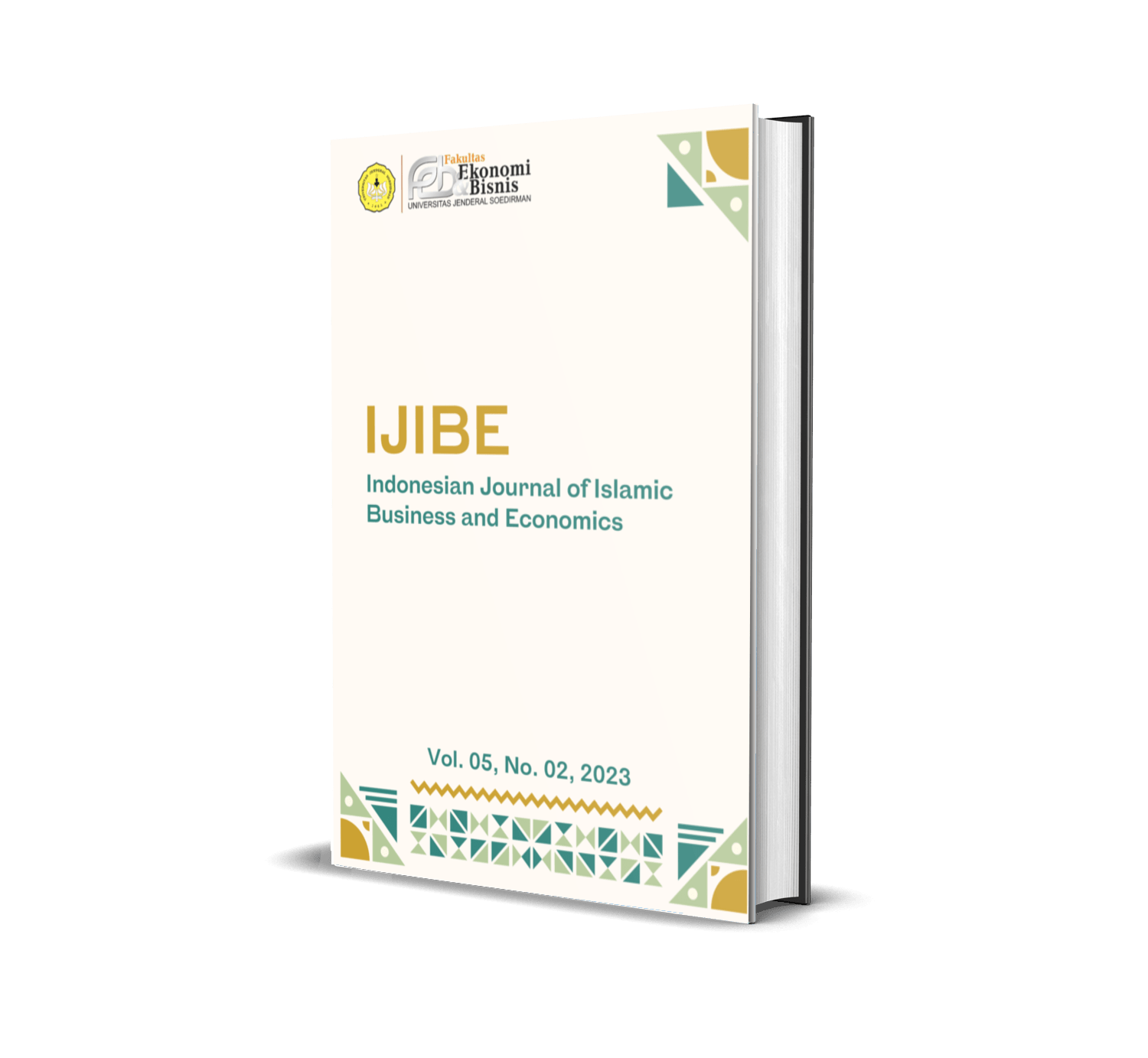The Impact of Implementing Islamic Wealth Management on Economic Empowerment of Women at the Majelis Taklim Post Covid-19 Pandemic -
Main Article Content
Abstract
The general objective of this research is to analyze what factors keep women economically empowered during the Covid-19 period. The basic theory used is the theory of famines of poverty (Amartya Sen), which states that one of the main factors for women's economic empowerment is access to financial resources. In this study, the financial governance carried out refers to the Islamic Wealth Management concept developed by experts. The method used in this study is quantitative with a causality approach, and besides that, the data analysis technique used is Structural Equation Modeling-Partial Least Square (SEM-PLS). The subjects of this study were female micro-entrepreneurs who were able to be empowered during the Covid-19 pandemic. The results of this study conclude that of the five aspects of Islamic Wealth Management, there are wealth accumulation, wealth protection, and wealth distribution have a significant effect on women's economic empowerment. Furthermore, the wealth creation and wealth purification variables do not have a significant effect on women's economic empowerment. The implication of this research is to be able to create a digital platform that supports women's economic empowerment in order to help the economic conditions of people's households so that they can rise as a result of the Covid-19 outbreak.
Article Details

This work is licensed under a Creative Commons Attribution-NonCommercial-ShareAlike 4.0 International License.
Authors who publish with this journal agree to the following terms:
- Authors retain copyright and grant the journal right of first publication with the work simultaneously licensed under a Creative Commons Attribution License that allows others to share the work with an acknowledgement of the work's authorship and initial publication in this journal.
- Authors are able to enter into separate, additional contractual arrangements for the non-exclusive distribution of the journal's published version of the work (e.g., post it to an institutional repository or publish it in a book), with an acknowledgement of its initial publication in this journal.
- Authors are permitted and encouraged to post their work online (e.g., in institutional repositories or on their website) prior to and during the submission process, as it can lead to productive exchanges, as well as earlier and greater citation of published work (See The Effect of Open Access).

